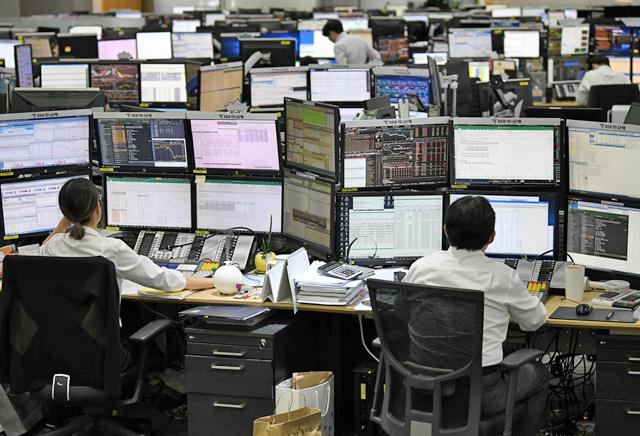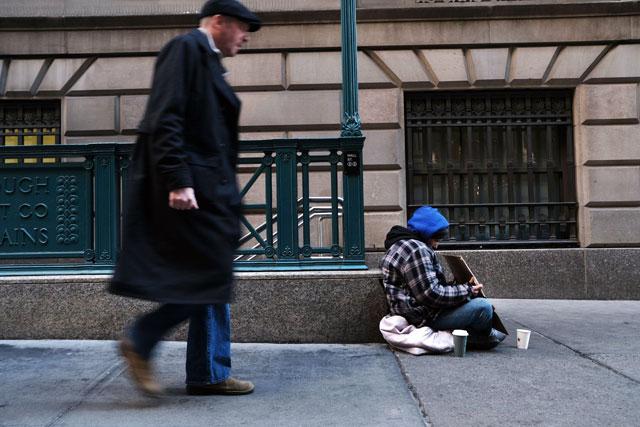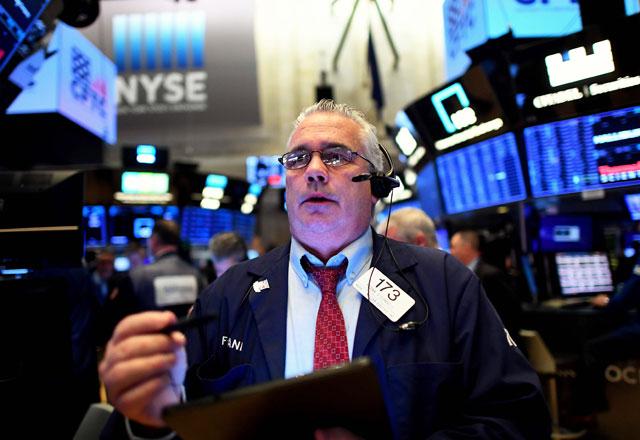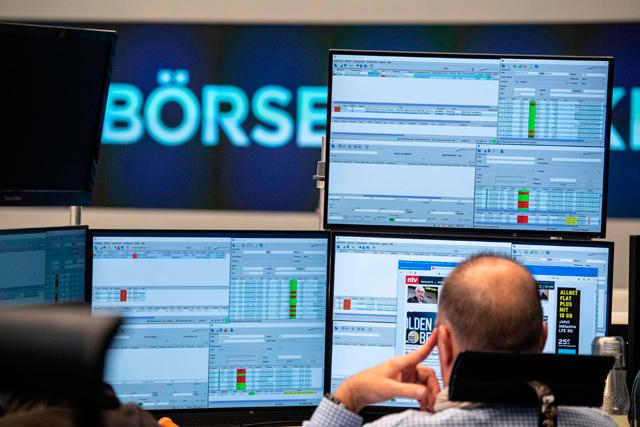You are here
Stock markets end final session lower but up sharply on year
By AFP - Dec 31,2019 - Last updated at Dec 31,2019

Currency dealers monitor exchange rates in a trading room at KEB Hana Bank in Seoul on Monday (AFP photo)
LONDON — Stock markets mostly retreated on Tuesday in shortened end-of-year sessions, but rose sharply overall in 2019, thanks to late surges on receding recession fears and easing China-US trade war tensions.
London's benchmark FTSE 100 index closed down 0.6 per cent from the previous session — but jumped 12.1 per cent in 2019 as it bounced back from a 12.5 per cent slump a year earlier.
In the eurozone, the Paris CAC 40 index ended 0.1 per cent lower, yet soared by more than a quarter over the year.
Frankfurt's DAX 30 finished its year on Monday with an annual gain of 25.5 per cent, also following a sharp loss in 2018.
The pound finished a volatile year with gains on Tuesday against the dollar and euro.
"It has been a year for rallies in equities," said Chris Beauchamp, chief market analyst at IG trading group.
"We endured plenty of Brexit and trade war headlines in 2019, but these will go with us into next year, ensuring more volatility for traders and investors."
Asian stock markets also closed mainly lower on Tuesday, following a subdued lead overnight from the US where investors took profits after Wall Street's recent record highs.
Hong Kong ended a half-day of trading almost 0.5 per cent down, although the bourse rallied more than 7 per cent in December. Tokyo was shut for a public holiday. South Korean stocks closed at 2,197.67 in the final trading session of 2019, on Monday.
"While market volumes are predictably light, investors continue to strike a year-end cautionary tone as December optimism is gradually giving way to 2020's uncertainty," Stephen Innes, chief Asia market strategist at AxiTrader, said in a client note.
Asian investors were also watching for key policy announcements early in the New Year.
North Korean leader Kim Jong-un was due to give his New Year's speech on Wednesday, with all eyes on nuclear-armed Pyongyang's threat of a "new way" after its end-of-year deadline for sanctions relief from the US, analysts said.
An address by China's Xi Jinping would be followed closely by the markets as well.
On Monday, media reports said the US and China would shortly sign a partial trade deal, with White House economic aide Peter Navarro telling Fox News the signing could occur "within a week or two".
"The P1 [phase one] deal is still 'skinny' relative to a full trade de-escalation scenario," cautioned AxiTrader's Innes.
"Investors will then press to consider the P2 risks, after all — how much more progress can be realistically expected ahead of the US elections next year?"
Elsewhere on Tuesday, oil prices slid despite reports Iran had seized a vessel suspected of smuggling fuel near the Strait of Hormuz — a chokepoint for a third of the world's seaborne oil.
Traders were also waiting for the release of US crude production data on Tuesday.
Over the year, the price of Brent North Sea crude jumped by almost one quarter and New York benchmark contract WTI soared more than one third in value, helped by a tighter supply situation.
Related Articles
HONG KONG/ NEW YORK — Wall Street stocks drifted higher in early trading on Thursday, adding to a heady December that looks poised to
LONDON — World stock markets gave a mixed picture on Monday as investor attention turned to the planned signing of a China-US trade pact, wi
LONDON — Equities rebounded while oil and safe-haven gold retreated on Tuesday as fears of a Middle East conflict abated, but investors rema



















